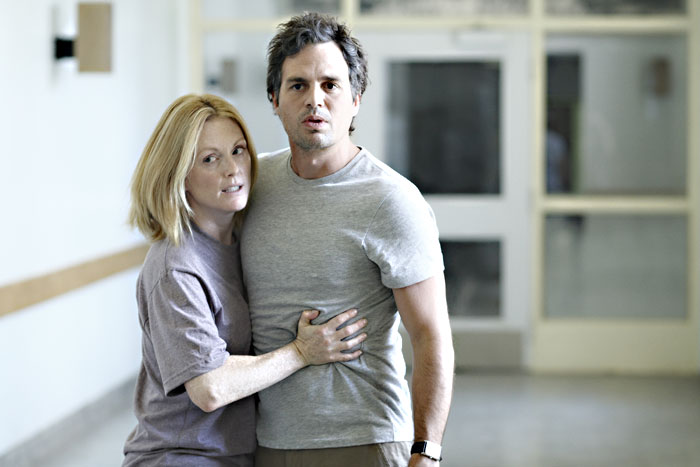The most recent example of bleak chic, Fernando Meirelles’ mostly harrowing adaptation of José Saramago’s international bestseller Blindness is unflinching at best and treacly at worst. The film, like the novel, opens with a man (Yusuke Iseya) in a car stopped at a traffic light who suddenly loses his vision. Another man (screenwriter Don McKellar), who drives him home and later steals his car, also falls prey to the mysterious “white blindness,” as does the first victim’s doctor (Mark Ruffalo). Soon, the entire human population finds itself engulfed in a milky sightlessness save, inexplicably, one: the doctor’s wife (Julianne Moore). Meirelles, working with his Brazilian cinematographer, César Charlone, establishes the plague’s outbreak with visual flair, evoking the experience of the ivory blindness through blurry and brightly overexposed frames. Like Saramago, Meirelles doesn’t much care about the medical or psychological specifics of blindness, nor is he interested in the fate of any one human, but rather humanity as a whole. (There’s obviously a grand metaphor here—people are “blind”—but it’s pretty simplistic.) Blindness is strongest when it’s not trying to say anything, but instead conveys the sheer desperation of its characters. The film pulls the viewer into its nightmarish vision and dares us to watch how humankind—at the level of both governments and individuals—fails to cope in times of chaos. And considering the current headlines, maybe that’s insightful enough. ANTHONY KAUFMAN
Blindness: Somebody Get Julianne Moore Out of This Movie!




